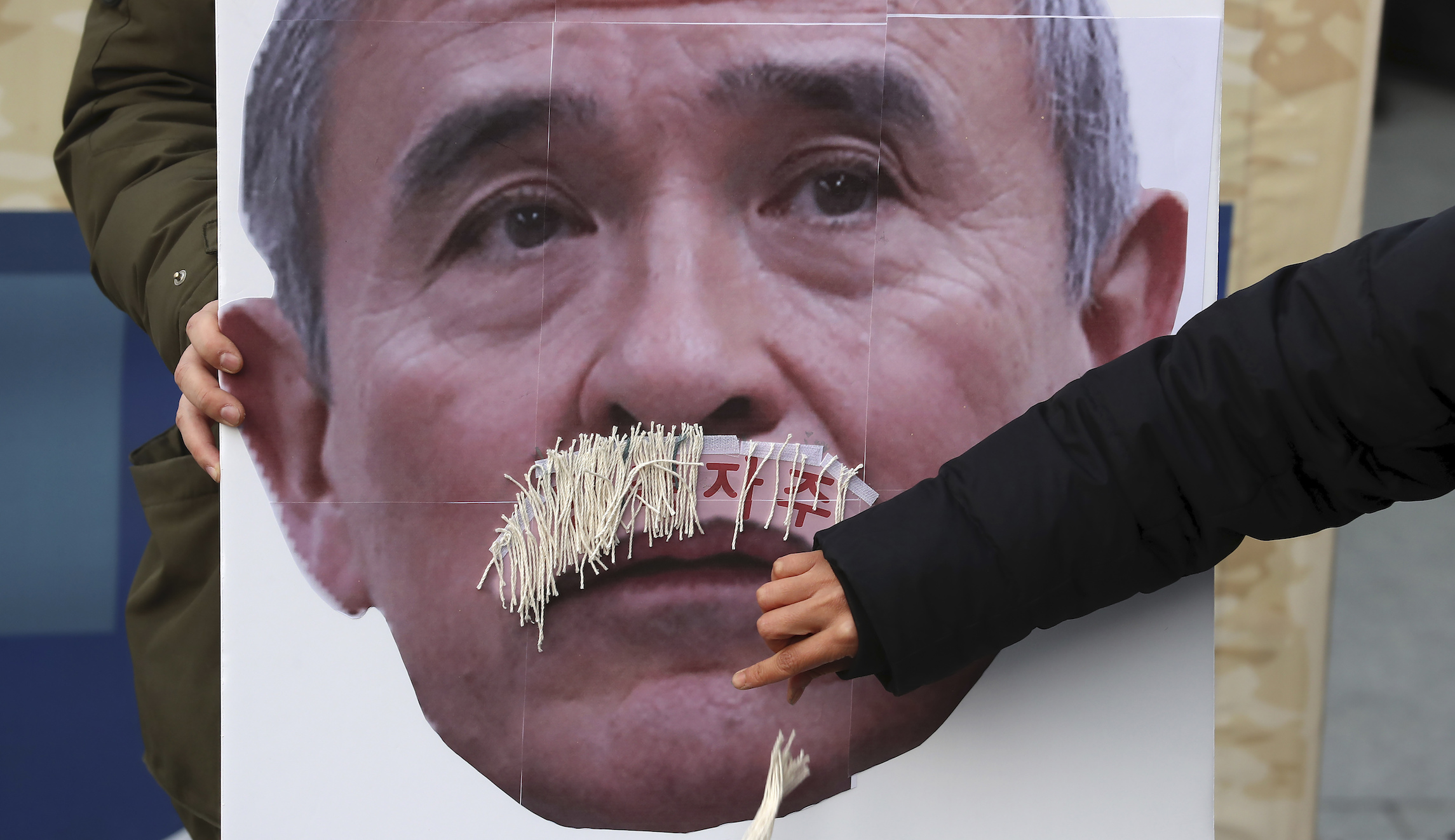The U.S. ambassador to South Korea claimed racist sentiments about his mustache are why he is unpopular in his assigned country.
Ambassador Harry Harris has been criticized online for his facial hair since arriving in South Korea to represent the Trump administration. Harris, a Japanese-American who was a four-star Navy admiral and chief of U.S. Pacific Command, said his struggle to connect with the South Korean people is connected to his Japanese ancestry.
“My mustache, for some reason, has become a point of some fascination here,” Harris, 63, said in Seoul last week. “I have been criticized in the media here, especially in social media, because of my ethnic background, because I am a Japanese-American.”
when they go low, @USAmbROK goes high. pic.twitter.com/o1UrdOCV61
— Jihye Lee 이지혜 (@TheJihyeLee) January 16, 2020
As Harris noted, several social media posts have compared photographs of Harris’s mustache to pictures of vicious Japanese generals who controlled South Korea during the early 1900s. Critics have latched onto the fact that Harris did not have the mustache before being appointed to the ambassadorship as evidence that he grew the facial hair to intimidate the South Koreans, but Harris said they were “cherry-picking history” because he only grew the mustache to separate his time in the military from his time in diplomacy. He also noted that Korean independence fighters also grew mustaches.
“I wanted to make a break from my military life to my new life. I couldn’t grow taller. I couldn’t grow hair on top of my head,” he said. “Nothing more nefarious than that.”
“But I’m not the Japanese-American ambassador to Korea. I’m the American ambassador to Korea,” Harris said. Harris’s parents met while his father, a U.S. Navy officer, was deployed in Japan.

The Korean Times, however, wrote on Monday that “the point is not his mustache.” The outlet argued that Harris’s role as Trump’s mouthpiece is the only reason he is disliked. The Trump administration has demanded that South Korea pay more for its defense against North Korean aggression, an argument President Trump has made to nearly every country in NATO.
“South Koreans would not have cared that much about his mustache if he was a ‘normal’ ambassador,” the Korean Times editorial said.
Leif-Eric Easley, associate professor of international studies at Ewha Woman’s University in Seoul, told ABC News: “Rather than address the sources of these frustrations, some South Koreans have directed their ire at an American admiral-turned-diplomat of Japanese heritage. Unfortunately, Seoul faces political and diplomatic decisions that are much tougher than opting for a clean shave.”
The South Koreans are not alone in their doubt about mustaches. Trump has been known to despise mustaches, such as the one sported by former national security adviser John Bolton. According to a 2016 report from the Washington Post, Bolton didn’t make the cut for secretary of state in part because Trump didn’t like his facial hair.
“Donald was not going to like that mustache,” a source said. “I can’t think of anyone that’s really close to Donald that has a beard that he likes.”
Bolton replied to the report about his facial hair, tweeting, “I appreciate the grooming advice from the totally unbiased mainstream media, but I will not be shaving my mustache.” The former United Nations ambassador landed in Trump’s administration as national security adviser but left the position in September.
Harris was not the first U.S. ambassador to experience hostility in South Korea. Former Ambassador Mark Lippert was stabbed in the face and arm by an anti-American protester in 2015.

